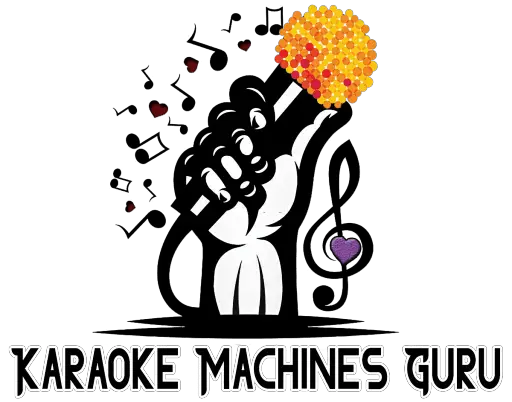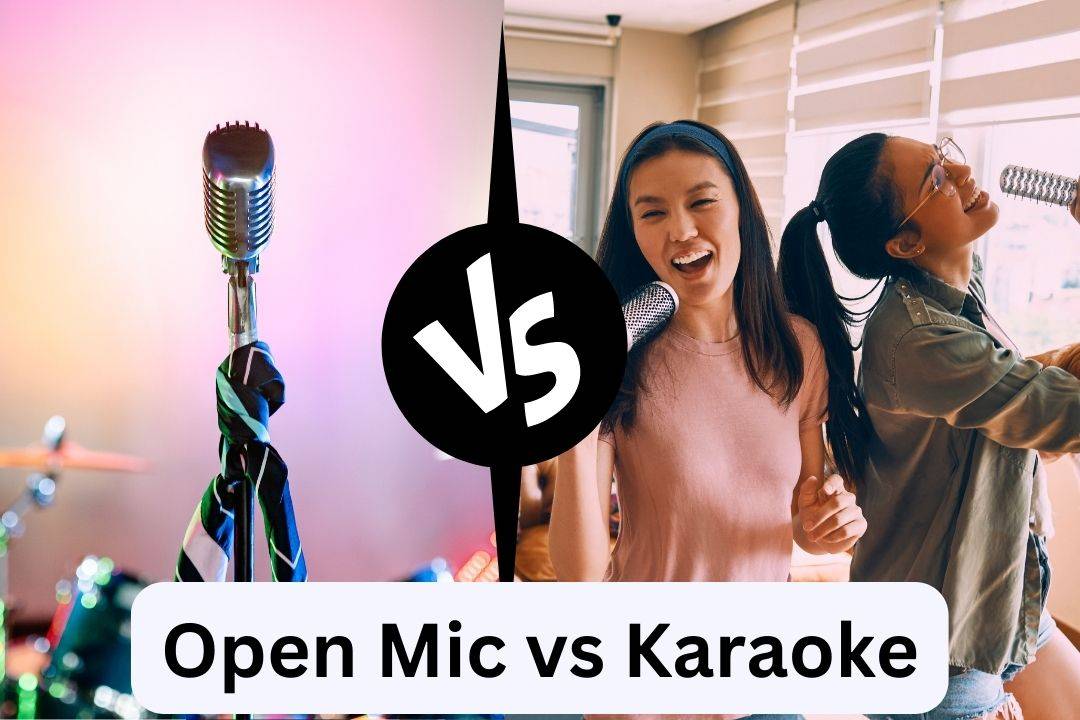When it comes to showcasing your musical prowess, there are two popular formats to choose from: Open Mic and Karaoke.
Both provide the opportunity for aspiring performers to take the stage, but each has its unique qualities that make it stand out.
In this ultimate showdown, we’ll dive into the distinct features of Open Mic and Karaoke, exploring the origins, settings, and vibes that set them apart. Get ready to discover which one is the perfect fit for you!
Open Mic vs Karaoke – A Comprehensive Guide to Their Differences!
The Birth of Two Musical Phenomena
Karaoke: Born in Japan and Loved Worldwide
Karaoke’s origin can be traced back to Japan in the 1970s, where it quickly became a popular form of entertainment. As the name suggests – ‘kara’ meaning empty and ‘oke’ short for orchestra – Karaoke involves singing along to pre-recorded music tracks without the need for a live band. This innovative concept soon captured the hearts of music lovers around the globe.
Open Mic: A British Legacy and a Stage for All
The concept of Open Mic events, on the other hand, hails from the United Kingdom and dates back to the 1930s. Open Mic provides a platform for performers of various talents, including singers, poets, comedians, and more, to express themselves and entertain audiences. Unlike Karaoke, Open Mic events often feature live musicians to accompany the performers, adding an extra layer of authenticity to the experience.
Open Mic and Karaoke Venues
Karaoke: From Cozy Bars to Home Setups
Karaoke can be found in a variety of settings, ranging from dedicated Karaoke bars and clubs to smaller venues like pubs and even private home setups. The main requirements for a Karaoke event are a sound system, a screen for displaying lyrics, and a library of pre-recorded music tracks to choose from.
Open Mic: Nightclubs, Coffee Shops, and Beyond
Open Mic events, conversely, tend to take place in nightclubs, bars, coffee shops, and restaurants. These gatherings require a stage, sound equipment, and often a live band or musicians to back up the performers. Open Mic events are versatile, allowing for an eclectic mix of talents and styles to be showcased in one evening.
Karaoke and Open Mic Major Differences
Reading the Room: Lyrics Display
While Karaoke relies on a screen displaying lyrics for performers to sing along with, Open Mic participants usually perform from memory or bring their own written material. This difference allows Open Mic performers to showcase their original compositions, while Karaoke is typically limited to popular cover songs.
Cost Considerations: Karaoke vs Open Mic
Organizing a Karaoke event tends to be more cost-effective, as it only requires a sound system, a screen, and a library of pre-recorded tracks. Open Mic events, on the other hand, can be more costly due to the need for live musicians, sound equipment, and a stage setup.
The Performer’s Playground: Amateur vs Professional
Karaoke is often seen as a fun pastime for amateur singers, while Open Mic events cater to a mix of both amateur and professional performers. Open Mic provides a platform for emerging talents to hone their skills and network with other artists, as well as a space for established performers to engage with their fans in a more intimate setting.
Comparison Table | Side-by-Side Analysis
| Criteria | Open Mic | Karaoke |
|---|---|---|
| Types of Performances | Singing, poetry, comedy, storytelling | Primarily singing |
| Skill Level | Amateur to professional | Mostly amateur |
| Music Accompaniment | Live musicians or self-provided backing tracks | Pre-recorded music tracks |
| Audience Interaction | Often encourages direct audience engagement | Limited audience interaction |
| Performance Preparation | Memorization or self-written material | Lyrics displayed on-screen |
| Networking Opportunities | Strong potential for networking among artists | Limited networking potential |
| Focus on Original Content | Encourages original compositions and material | Focus on popular cover songs |
| Frequency of Events | Often weekly or monthly | Can be daily or weekly depending on the venue |
| Equipment Needs | Stage, sound equipment, live musicians (optional) | Sound system, screen, pre-recorded music library |
| Atmosphere | Varies from relaxed to competitive | Usually casual and fun-oriented |
| Typical Venue Size | Small to medium-sized venues | Small to large venues |
| Performance Duration | Varies, often with a time limit per performer | Usually limited to one song per turn |
| Sign-up Process | May require advance sign-up or first-come basis | Often sign up on the spot |
| Age Range | Can be all ages or adult-only, depending on the venue | May be restricted based on the venue |
Final Thoughts: Choose Your Stage and Unleash Your Talent
Whether you’re an aspiring singer belting out your favorite tunes at a Karaoke night or a versatile performer sharing your original work at an Open Mic event, both formats provide unique opportunities to showcase your talent.
FAQs
What is the purpose of an open mic?
The purpose of an open mic is to provide a creative and supportive space where individuals can share their artistic expressions and talents with an audience.
Open mic events serve as a platform for performers of various skill levels and backgrounds to gain experience, develop their abilities, and connect with like-minded individuals.
By fostering a sense of community and collaboration, open mics contribute to the growth and enrichment of local art scenes, while offering entertainment and inspiration to both performers and spectators.
Can anyone sing at an open mic?
Yes, anyone can sing at an open mic. These events are designed to welcome performers of all skill levels and backgrounds, providing an inclusive and supportive environment for individuals to showcase their talents.
Whether you are an amateur singer trying out a new song or a more experienced artist looking to share your original work, open mic events offer a unique opportunity to express yourself and connect with others who share your passion for music.
Can I perform original songs at a karaoke event?
Karaoke events typically involve singing along to pre-recorded music tracks and displaying lyrics on a screen. However, some venues may allow you to perform original songs if you provide your own backing track and lyrics.
It’s advisable to check with the event organizer or venue beforehand to confirm their policy.
Are there age restrictions for open mic and karaoke events?
Age restrictions for open mic and karaoke events depend on the specific venue and local laws. Some events may be open to all ages, while others may be restricted to adults due to the venue’s license or the nature of the performances. It’s essential to check the age requirements before attending or participating in an event.
How can I prepare for my first open mic or karaoke performance?
To prepare for your first open mic or karaoke performance, practice your chosen song(s) or material thoroughly, ensuring you’re comfortable with the lyrics, melody, and any accompanying instruments. It’s also helpful to familiarize yourself with the venue and its equipment and practice performing in front of friends or family to gain confidence and receive feedback.

John Smith is the founder and CEO of Karaoke Machines Guru. He is a karaoke tutor and karaoke enthusiast and has been passionate about karaoke since he was a child. He also writes about karaoke-related tips, guides, and product reviews on this website.
He overlooks the whole website and makes sure that everything is running smoothly. Learn more!

